4 min read
Today, Vercel announced an important milestone: a Series F funding round valuing our company at $9.3 billion. The $300M investment is co-led by longtime partners at Accel and new investors at GIC, alongside other incredible supporters. We're also launching a ~$300M tender offer for certain early investors, employees, and former employees.
To all the customers, investors, and Vercelians who have been on this journey with us: thank you.
Link to headingThe web is evolving: From pixels to tokens
We recently celebrated our 10th anniversary, and this has been, without a doubt, the biggest year in Vercel's history. The web is undergoing a massive evolution. We're moving from the world of pixels to the world of tokens.
Our founding insight back in 2015 was simple: the world’s largest companies – Amazon, Google, Facebook – had internal infrastructure that allowed them to build and ship fast. They defined the protocols, the infrastructure, and the frameworks. The rest of the world didn't have access to that. Vercel was founded to democratize that advantage.
Then the world changed. We used to build pages, and now we’re going to build agents.
What makes this moment so unique is that not even the giants have figured it out yet. Everyone's being disrupted. It's a great time for startups, a great time for innovators, a great time for enterprises. But companies that don't iterate quickly will be left behind.
This transformation demanded we evolve with it. We've evolved as much in this last year as we did in the first nine. Because there has to be a cloud that's designed and purpose-built for AI applications. Vercel has built this from the ground up with the AI Cloud.
Link to headingThe same mission, but for AI
When we raised our Series C four years ago, I talked about three things:
Building the SDK for the web
Lowering the barrier to entry
Focusing on the end user experience
Today, we're doing the same three things, but for AI.
Building the SDK for AI. The AI SDK might be one of the most consequential projects we've ever worked on. It provides access to more than 60 models through a unified interface. Just like React brought accessibility to pages, the AI SDK is bringing accessibility to tokens to multiple sources of intelligence.
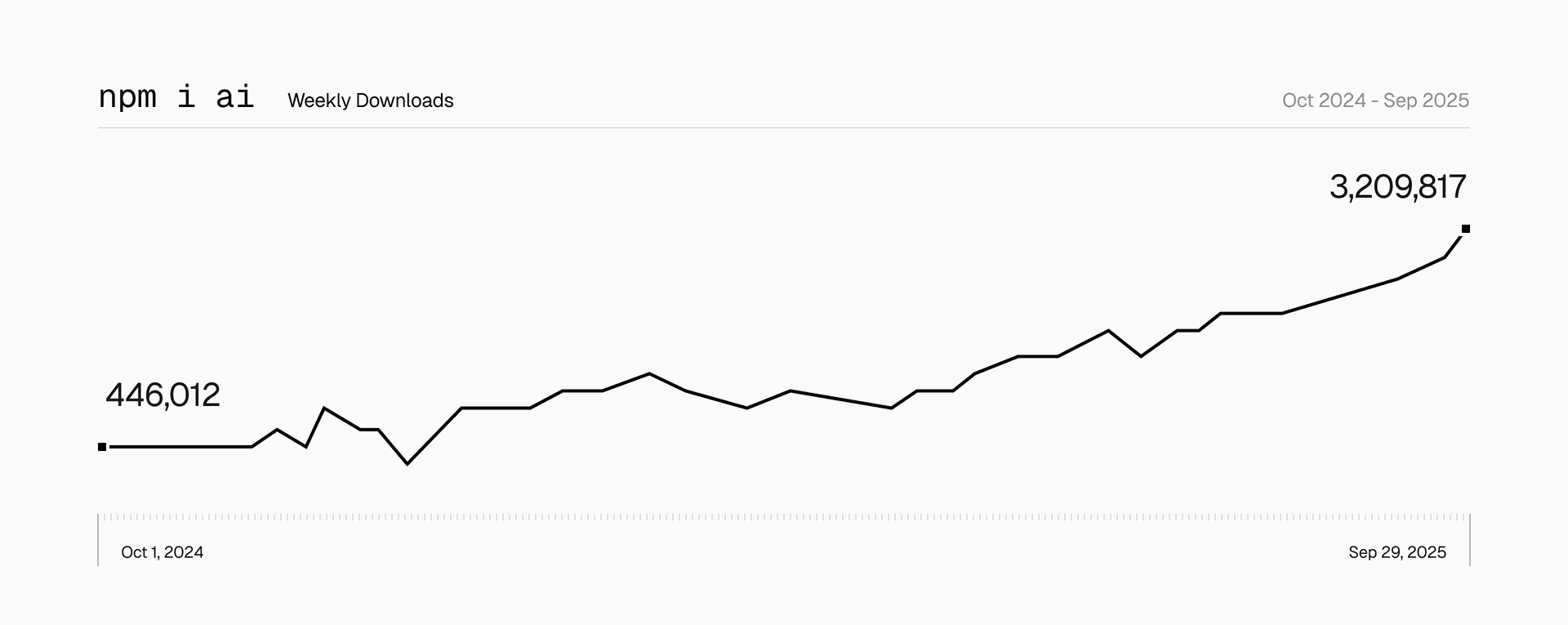
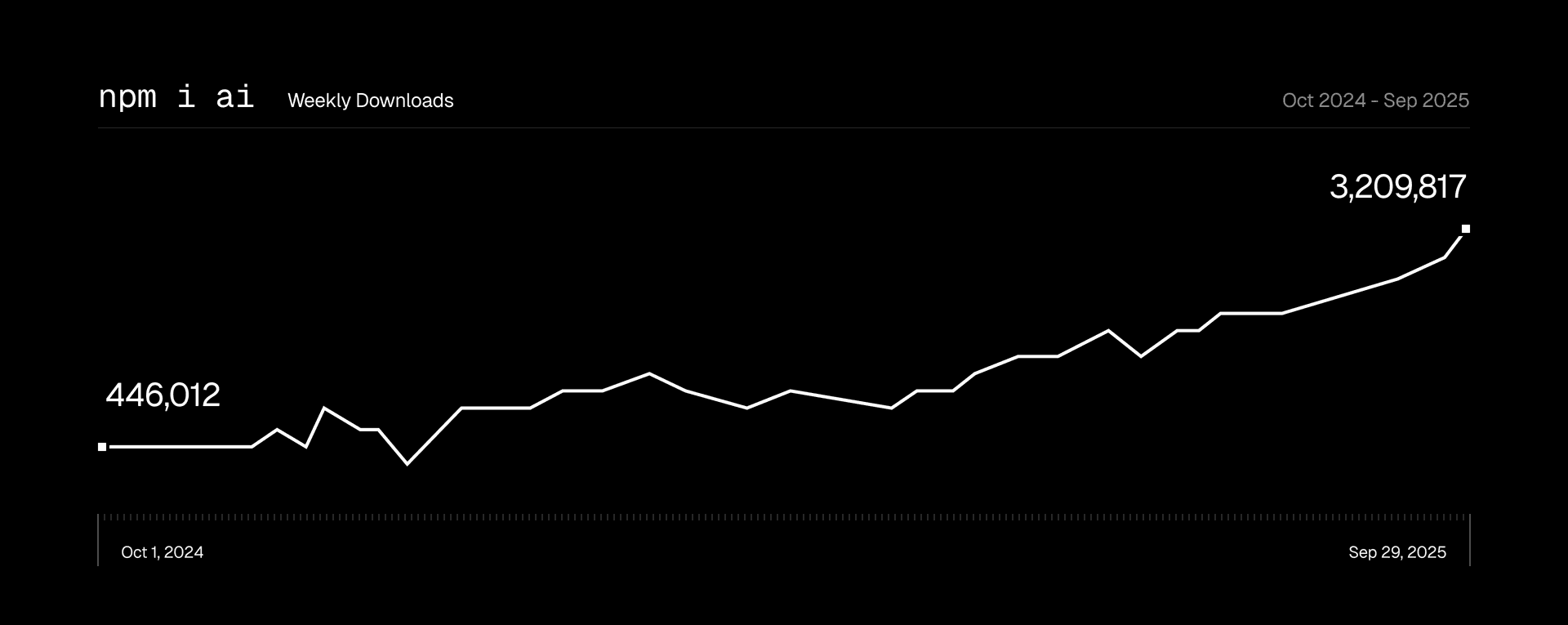
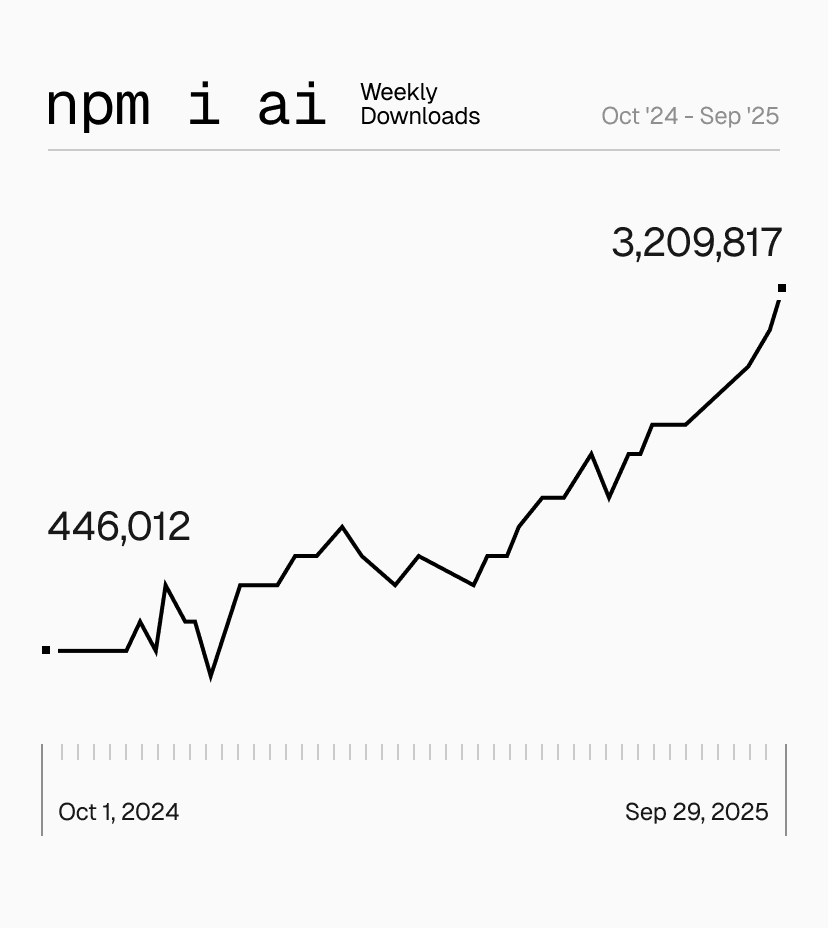
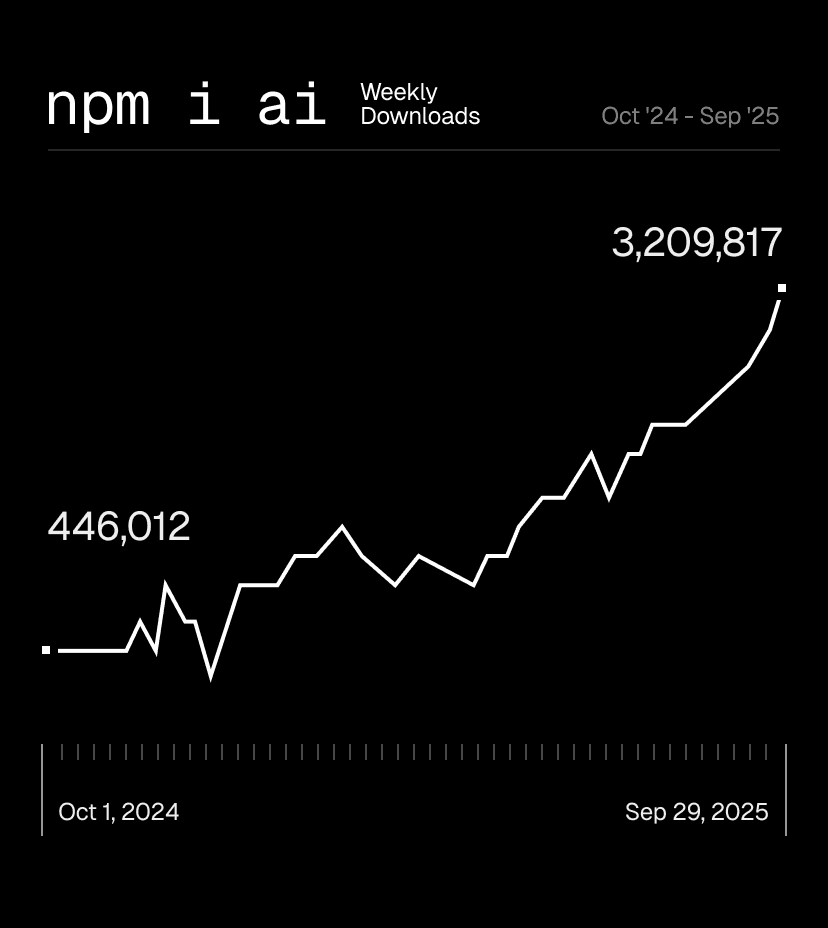
The numbers tell the story: the AI SDK has crossed 3 million downloads per week (by far our fastest-growing open source project ever).
Lowering the barrier to entry. With the rise in popularity of ChatGPT, developers we speak to every day want the power to build their own agents and deploy them safely in their own environments.
We recently open-sourced a ChatGPT Enterprise-like template. We also shipped an open source vibe coding platform with v0. Our bet on open source has become a powerful flywheel, and we’re excited to continue democratizing agents and making them accessible to everyone.
Focusing on the end user. And don't forget about the pixels. Interfaces still matter. The biggest AI products, Grok, Claude, and Cursor, are using Next.js to power their frontends. In the last 12 months, Next.js has been downloaded over 500 million times, exceeding the total downloads from 2016 to 2024.
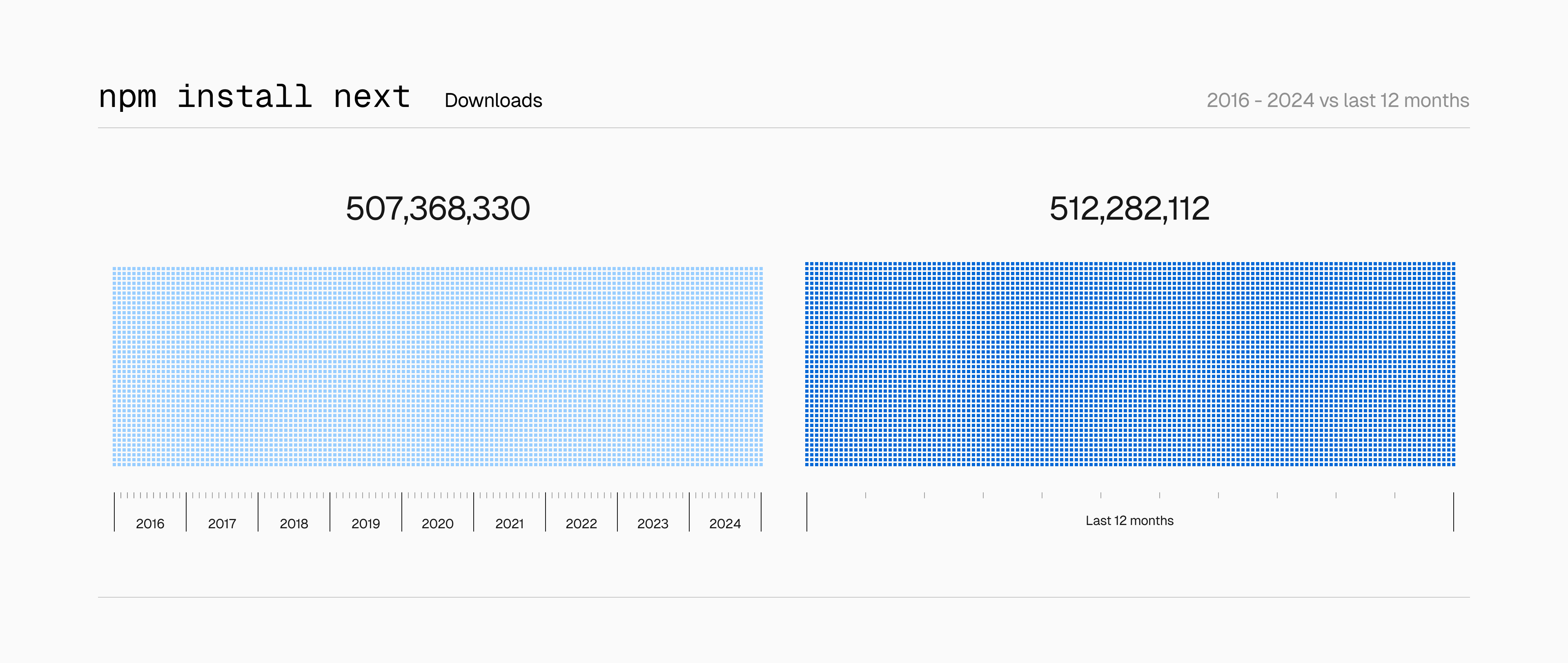
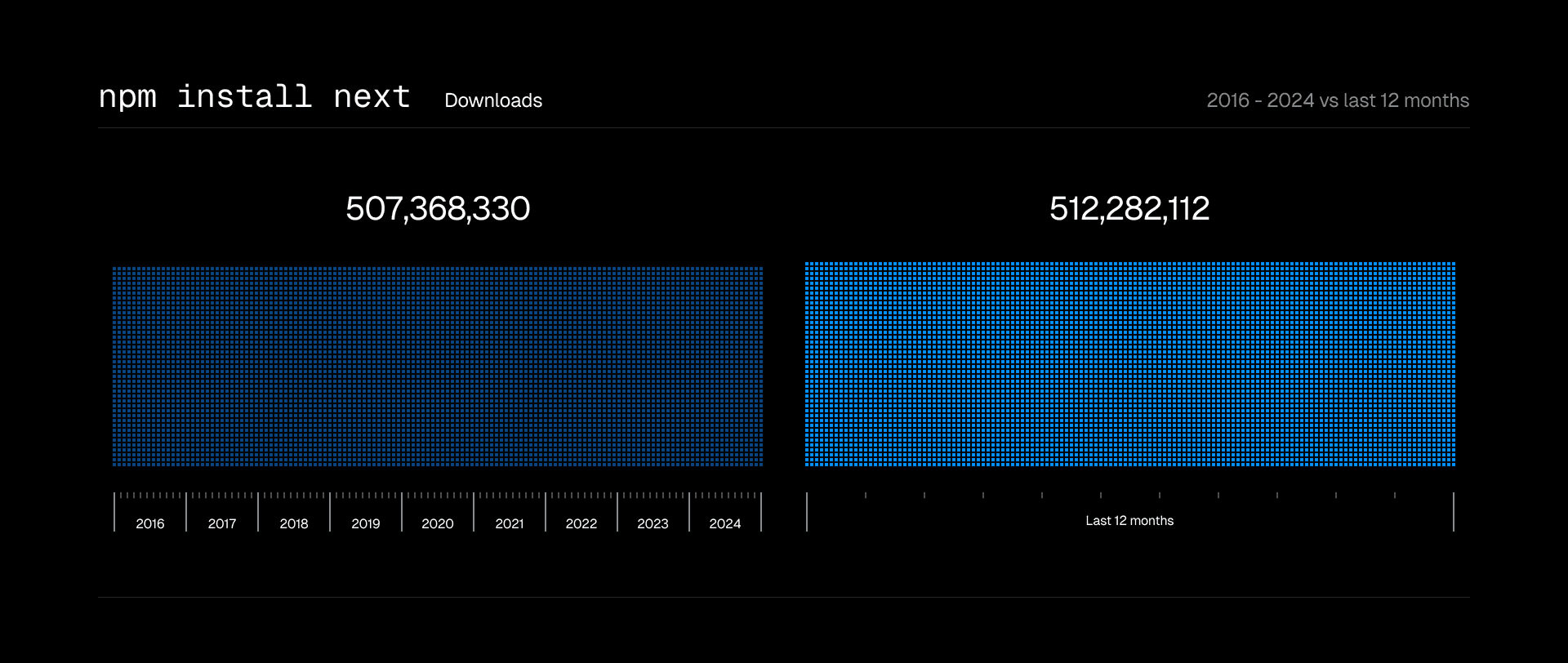
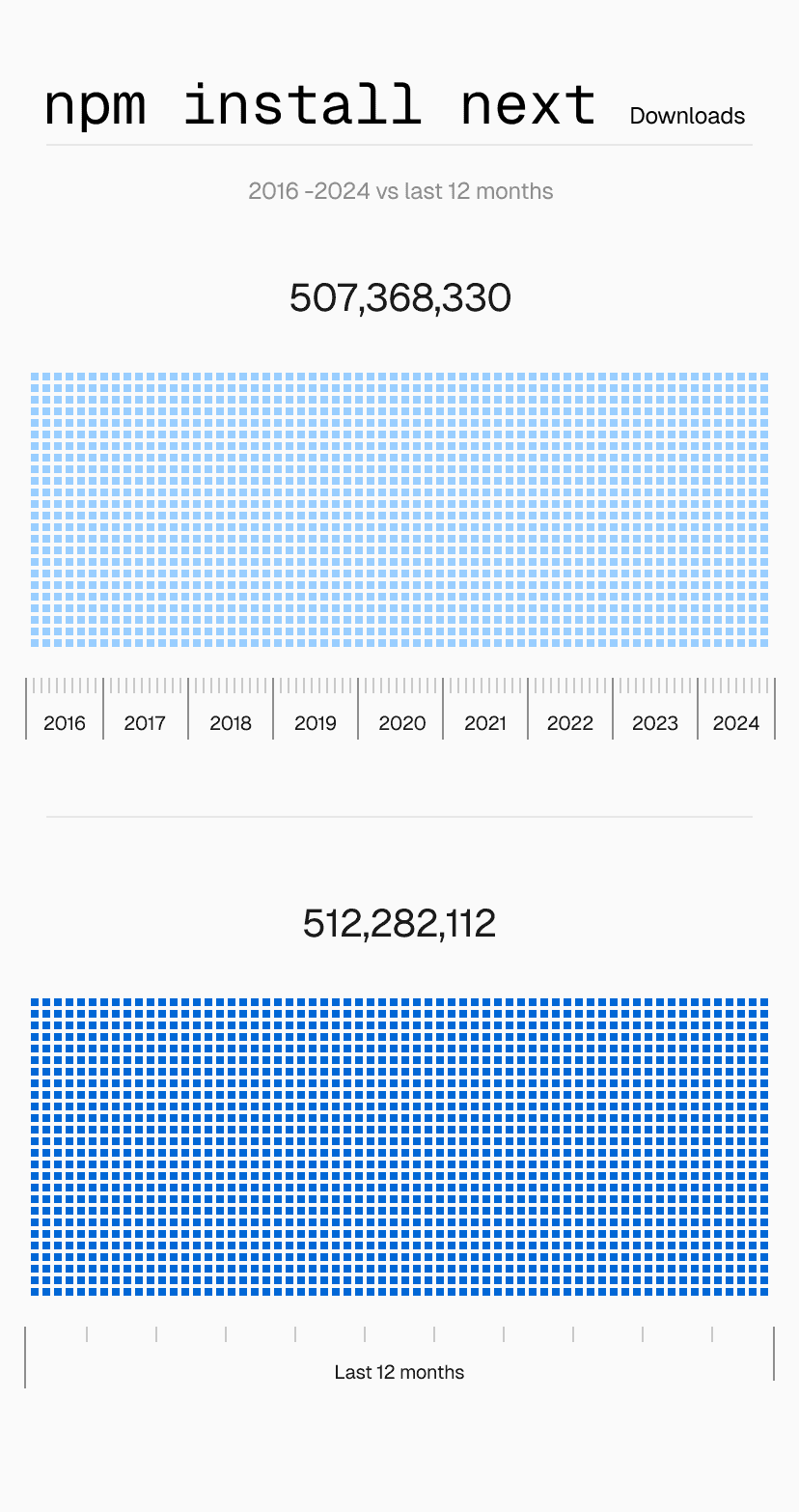
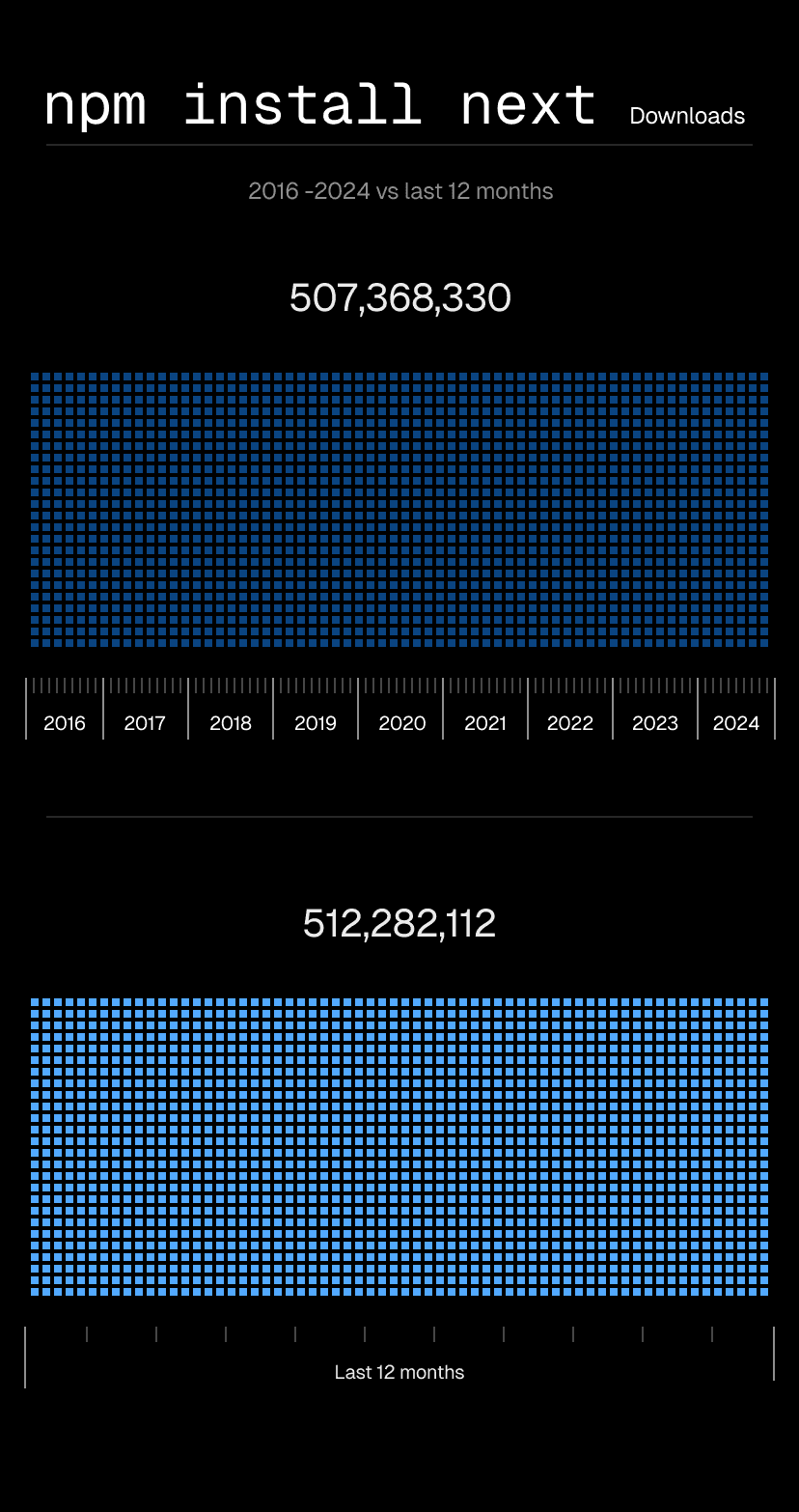
Link to headingBuilding the future
Agents will completely reshape the web, including how we work. Vercel is powering that shift. As we turn the corner into the last quarter of 2025, we're locking in.
The AI Cloud isn’t just a foundation for developers building agents. It’s where we’re building our own. Earlier this month, we introduced Vercel Agent in public beta with a new skill: AI-powered code reviews. These reviews go beyond the diff, scanning your entire codebase, generating and actually validating fixes (by running your app with the patch in Vercel Sandboxes), and surfacing them directly in your pull requests.
What makes this powerful is that Agent isn’t static. It adapts to frameworks like Next.js and React, supports multiple languages from TypeScript to Go and Python, and validates every recommendation against real execution environments. It’s a glimpse of what happens when infrastructure is no longer just provisioned, but actively participates in making applications faster, safer, and more efficient.
Coming up in the next few weeks: general availability of the v0 iOS app. Currently in public beta, it's the manifestation of something profound we discovered about work: 70% of development happens outside traditional work hours. The best ideas don't wait for you to be at your desk.
v0’s mobile app is the evolution of your Notes app, except your ideas get built for you in the background. Build at the speed of sound with voice prompts. Start a project on your computer, leave your desk, and get notified when your long-running agent tasks complete. With more than 10,000 people on the waitlist, v0 on mobile represents the collapse of the last barriers between imagination and creation.
2025 was the year my lifelong belief in a dynamic web exceeded what I thought was possible: millions of developers (and agents) creating experiences we couldn't imagine just a year ago.
I'll see you there (and also at Next.js Conf and Ship AI), building the future on the free, open, and infinitely creative web.